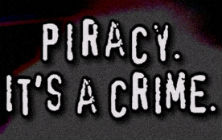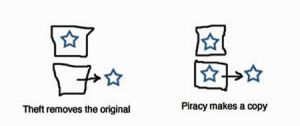Movie Piracy Combated by Narrowing Theatrical Release Window
lundi 16 juin 2014 à 10:32 While its popularity has waned in recent years, the issue of camcorder piracy is often spoken about in crisis terms by the major movie studios.
While its popularity has waned in recent years, the issue of camcorder piracy is often spoken about in crisis terms by the major movie studios.
Part of the reason camming occurs, however, is down to the exclusivity enjoyed by the world’s theater chains, meaning that while a mainstream movie is being shown in a cinema, it is not available anywhere else. It will not be available on Netflix nor will it be available for purchase on Blu-ray or DVD. This creates a convenient opening for the black market.
Of course, pretty much the whole time a movie is showing in theaters it will be available both online and on DVD, because someone, somewhere, will have recorded it illegally. True exclusivity only exists in the minds of the theaters and distributors.
Just lately it’s been extremely popular for Australians to be criticized for their piracy habits, an activity sometimes justified by films not being made available quickly enough Down Under. This morning it’s been revealed that the group representing the Australian film and TV home entertainment industry intend to do something about that.
Speaking with Fairfax Media, Australian Home Entertainment Distributors Association chief executive officer Simon Bush said that the current theatrical window will be narrowed in an effort to reduce piracy.
“This 120 days is not the hard and fast rule anymore and there will be some studios this year that will be coming in around the 90 days,” Bush said. “[The studios] don’t like the fact that they are losing out a lot of money to piracy.”
It’s hoped that the shortening of the delay will go someway towards reducing illegal movie downloads in Australia by providing content in alternative formats in a more timely fashion. That being said, AHEDA still wish to preserve the big screen’s exclusivity in the market and its position as the premier location for early viewing.
“It continues to ensure that the theatrical window retains its rightful prominence in the market as the premium movie experience, but also allows the consumer to increasingly access the film earlier digitally and on DVD and Blu-ray and thus reduce what some refer to as the ‘piracy window’,” Bush said of the narrowing window.
While improved availability is key to reducing piracy, theaters will undoubtedly balk at the further erosion of their exclusive window of opportunity. However, according to comments made by DreamWorks Animation chief Jeffrey Katzenberg, release windows could collapse almost entirely in the next ten years.
“I think the model will change and you won’t pay for the window of availability. A movie will come out and you will have 17 days, that’s exactly three weekends, which is 95% of the revenue for 98% of movies,” Katzenberg told the Milken Global Conference in Beverly Hills earlier this year.
“On the 18th day, these movies will be available everywhere ubiquitously and you will pay for the size. A movie screen will be $15. A 75” TV will be $4.00. A smartphone will be $1.99. That enterprise that will exist throughout the world, when that happens, and it will happen, it will reinvent the enterprise of movies,” he said.
In the meantime, the Australian government will try to legislate its way out of the piracy problem, by imposing “three strikes” style schemes on its citizens and pressuring ISPs to take responsibility for the actions of their subscribers.
Source: TorrentFreak, for the latest info on copyright, file-sharing and anonymous VPN services.




